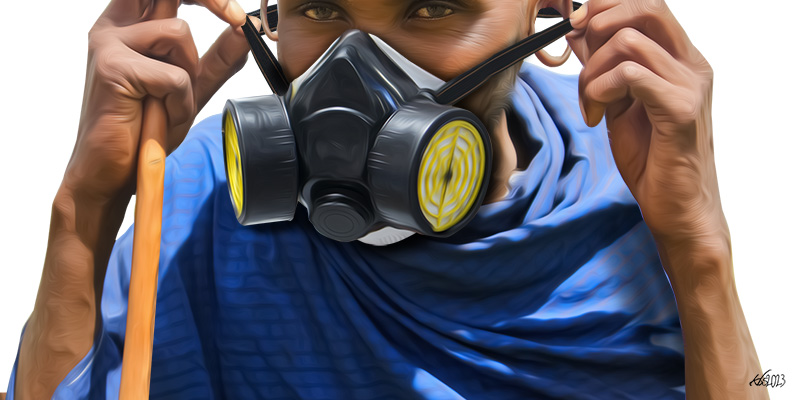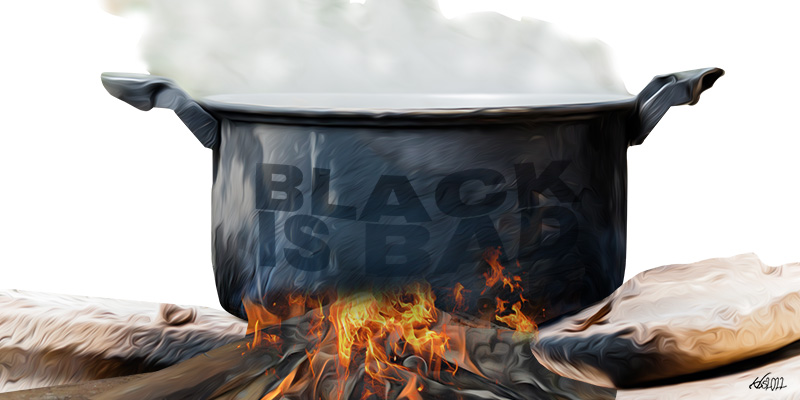*This reflection is dedicated to my spiritual son, Jesse Masai, and several others like him who constantly wrestle with the question of their responsibility to the Republic in this season.
An old proverb says, “We have not inherited this land from our forebears, we have borrowed it from our children.” Here, we are debtors and owe our children a prosperous future.
The extent to which we develop our democratic institutions, entrench the rule of law and build a prosperous economy shows our obligation towards them. The dream of a land of freedom, where individual rights are guaranteed and where all prosper is fast turning into a frightening nightmare. The once-abhorred Nyayo era, marked with authoritarianism, state terror, press censorship and violation of human rights is back with a vengeance.
Throughout my writings, I have strenuously been trying to be non-partisan on party politics. This then is the article I thought I would never write: a candid assertion that a certain form of partisanship is now a moral necessity. The Jubilee government, as an institution, has become a danger to the rule of law and to the integrity of our democracy. The problem is not just President Uhuru Kenyatta; it’s the larger political apparatus, including Parliament, that made a conscious decision to enable him.
In a multi-party system, non-partisanship works only if all players are consistent democratic actors and subject to independent institutions that safeguard democracy. If one of them is not predictably so, the space for non-partisanship evaporates. I am thus driven to believe that the best hope of defending the country from Uhuru’s Jubilee enablers and saving the nation is to stage a public protest as Muthoni Nyanjiru and Nobel Laurent Professor Wangari Maathai did in 1922 and 1992, respectively. Protest against the government and Parliament until they get it right or implode!
The Jubilee government, as an institution, has become a danger to the rule of law and to the integrity of our democracy.
How can a prosperous future for our children be realised under these conditions? This is not how we pay the debt we owe our children. Today’s youth must not allow us to squander that future. There is an urgent voice calling for action now: “Wade in the waters, children…” Can’t we hear it?
The legendary Harriet Tubman, also known as “Moses” (who once had a US$40,000 price tag on her head for “slave stealing”), sung this song to alert the runaway slaves she guided to freedom. The song signaled to runaways: “Use the river so the hounds can’t trace you. Tonight is the moment for flight; move swiftly; the reaction will be fierce.” Harriet speaks to us today: Now is the time: stop this backsliding, “wade into the waters”, free our children from slavery. Wade into the waters, children!
This advice does not seem smart at first. Why would one want to jump into waters that God stirred up (described in the Bible as troubled)? For many Kenyans, the failure of the opposition NASA to guide them to Canaan is troubled waters. Under persistent attacks – many of them seemingly minor – democratic institutions in Kenya have been eroded gradually until they have failed. The undermining of the independence of the electoral commission, the police service and the free press has rendered our democratic process useless. Our waters are troubled in at least two possible ways.
Lately, we have come to regard the government as a danger to the Constitution of Kenya 2010. It has proved unable or unwilling to block assaults on the rule of law. If these assaults are normalised, they will pose an existential threat to Kenya’s future.
Secondly, our economy is being shackled with foreign debt. This act makes a mockery of the 2000 Jubilee campaign that pushed Western countries to forgive crippling foreign debts of the world’s poorest countries, including Kenya. It is irresponsible to deliberately and unnecessarily enslave our children’s future in debt, erasing their future ability to compete in this world.
There is an urgent voice calling for action now: “Wade in the waters, children…” Can’t we hear it?
Francis A. Schaeffer, warning in his book How Should We Then Live? is instructive to us in Kenya: “If we…do not speak out as authoritarian governments grow from within or come from outside, eventually we or our children will be the enemy of society and the state. No truly authoritarian government can tolerate those who have real absolute by which to judge its arbitrary absolutes and who speak out and act upon that absolute.”
A similar situation is playing out in a Kenya that negates the government’s claim to construct a prosperous future for our children. Instead of addressing these challenges, the government elects to shut down media channels that expose its incompetency and locks up critics who question its legitimacy. This is a perfect recipe for national rebellion.
Fredrick Douglas warned: “The thing that is worse than rebellion is the thing that causes rebellion.” Failure to address the causes of disquiet – and instead opting to use unconstitutional means to silence people – will be the Achilles heel of this government. This may have a tragic ending.
When Laius, the King of Thebes, is told by the Oracle of Delphi that his son will kill him and sleep with his mother Jocasta, the king pierces his baby son’s ankles and leaves him on a mountainside to die. This becomes the first of a sequence of events that leads to the Oracle’s prophesy being fulfilled. For a shepherd finds the baby and takes him to King Polybus and Queen Merope of Corinth, who name him Oedipus and raise him as their own.
Failure to address the causes of disquiet – and instead opting to use unconstitutional means to silence people – will be the Achilles heel of this government. This may have a tragic ending.
Later, Oedipus seeks the help of the Oracle of Delphi to know his parentage. The Oracle tells him that he’s destined to kill his father and sleep with his mother. Oedipus tries to run from this fate, but ends up running right into it. He kills Laius in a scuffle at a crossroads, not knowing he’s his real father. Later, he wins the throne of Thebes and unknowingly marries his mother, Jocasta, after answering the riddle of the Sphinx. When they figure out the truth, Jocasta hangs herself and Oedipus stabs out his own eyes. The Greek story ends in tragedy.
In the spiritual song – Wade in the Waters – those who will be blessed are urged to step into the waters first, before the angel of God comes. The song stresses meeting hardships with courage and “steady” faith; gather now and get ready, the healing is promised. Gather now, so that all will be among the first received and delivered by the gifts of grace that spring forth in dark times. While addressing young Germans in Stuttgart on the need to stand for human dignity, former United Nations Secretary-General Dr. Kofi Annan said: “You are not too young to lead, for to lead means to take responsibility and set example.” He explained, “When leaders fail to lead, the people can lead and make leaders follow.” For this very reason, youth in this country must wade in the waters and assume leadership to save their future.
But can we rely on the youth to deliver?
Harris Okongo Arara went to Chianda High School in Uyoma, Siaya County, the same school I attended. He was the best footballer and hockey player that the school ever produced. Upon completing his studies, Arara joined the Kenya Air Force. When he was in his 20s, he became an activist for change and courageously led the fight to end one-party dictatorship in Kenya. What he told a Nairobi court about to sentence him to jail for sedition on September 24, 1988, expressed the values he stood for and the vision he had for Kenya. He declined to plead for leniency or mercy. With confidence, he dismissed the courts’ right to judge him. Arara questioned why he should seek personal mercy while millions of Kenyans lived in misery. He was proud to join the company of those he called apostles, who attempted to rescue justice but found themselves in detention, prison or exile. He said:
The people of this nation are simply demanding their fundamental rights and freedoms. They are simply demanding their rights to a decent living, right to education, right to proper medical care, right to housing. In short, the right to be human beings. If that is sedition, so be it. These are the goals for which I have always fought, and for which I am prepared to die.
Arara was sentenced to a five-year jail term. This was his second stint in jail, having been in detention without trial for six years following the 1982 coup attempt. Arara had only been free for eight months at the time of this sentencing. He was wading into the troubled waters of the Nyayo era.
We learn history because through it we understand the sacrifices that were made before, so that when we make sacrifices we understand we’re doing it on behalf of future generations. It is possible to resist oppressive laws enacted by Parliament that undermine the Constitution and degrade human dignity.
In 1922, for instance, 27-years old Harry Thuku, the leader of the East African Association, was arrested for acting and speaking against “forced labour of women on the roads”. Officials of the nationalist association rallied African workers in Nairobi to go on strike. On March 15, transport workers, domestic workers and government employees deserted their workplaces and gathered in front of the police station where Thuku was being held. Makhan Singh, in History of Kenya’s Trade Union Movement to 1952, wrote: “As the crowd grew, a deputation of the East African Association, including Jomo Kenyatta, held a meeting with Acting Governor Sir Charles Bowring in his office.”
According to Audrey Wipper, who wrote the chapter “Kikuyu Women and the Harry Thuku Disturbances: Some Uniformities of Female Militancy in the Africa” in the Journal of the International African Institute, Nyanjiru and her stepdaughter, Elizabeth Waruiru, were among the city’s female workers who came out to demonstrate. Nyanjiru was a Kikuyu woman who had moved from the village of Weithaga in the native reserves to Nairobi. Addressing the strikers, Jomo Kenyatta announced the deal the East African Association deputies had reached with the governor: Thuku could not be released, but the governor had promised him a fair trial. He then urged the demonstrators to disperse.
It is possible to resist oppressive laws enacted by Parliament that undermine the Constitution and degrade human dignity.
Nyanjiru stood in the front of the crowd near Kenyatta as the demonstrators began leaving. She threw her dress over her shoulders and exposed her naked body, taunting the cowardice of the men and challenging them to stand up to Kenyatta. (In Ngugi wa Thiong’o’s A Grain of Wheat, Nyanjiru is presented as a woman who is incensed by men’s impotency against colonial oppression. She challenges men to swap their trousers for women’s skirts.) Nyanjiru threatened to lead the demand for Harry Thuku’s release if the men were too cowardly to do it.
The 300 women present ululated loudly. The strikers were galvanised by Nyanjiru’s actions and the women’s call to battle. Men who were beginning to disperse returned. A large section of the crowd rushed forward towards the armed guards. Nyanjiru stood only a few feet away from the guards, who had been on duty for 18 continuous hours. The guards kneeled and engaged their rifles at the command of the superintendent of police, Captain Carey.
In the end, 200 Kenyans died. Thuku was exiled, first to Kismayu, then to Marsabit, Witu and Lamu. But as Bryan Ngartia observed in The Ageless Defiance of Muthoni Nyanjiru, “the sacrifice wasn’t all in futility. The tax was reduced from 16 shillings to 12 shillings and was never again raised for the sole purpose of filling labour needs. African grievances were given serious consideration.” This was the seed of struggle that matured in the later independence of Kenya.
Where Are Those Songs? Micere Githae Mugo pleads with our mothers today:
Where are those songs / my mother and yours / always sang / fitting rhythms / to the whole / vast span of life/? […] Sing Daughter sing […] sing/simple songs/for the people/for all to hear/and learn/and sing/with you.
In 1992, Prof. Maathai led mothers of political prisoners detained by the Moi regime to occupy Freedom Corner in Nairobi’s Uhuru Park. The government, in now familiar style, dispatched armed police to evict the women, who stripped naked in protest and defiance. Prof. Maathai was beaten unconscious and hospitalised, but the women of Freedom Corner eventually won. Prof. Maathai and her group of women also stopped President Daniel Toroitich arap Moi – at the zenith of his power – from building what would have been Times Tower, a complex associated with the ruling party, at Uhuru Park.
Women must wade in the waters and refuse to be silenced; they must fight for their children’s future. In her contribution published in The Inquiry in 2013, titled “Silence is a Woman”, Wambui wa Mwangi opposed the exclusionary, false, Gikuyu-centric narrative and ideological erasure of many other ethnic communities in the Kenyan story as told by Gikuyu men. She stresses: “Here, I also want to insist on the strong tradition within Gikuyu women’s culture of resisting tyranny, oppression, domination, and hubristic upumbafuness by the men.” Wambui is right to point us to the fact that authoritarianism has no ethnicity. We all sink under bad leadership.
Wambui is right to point us to the fact that authoritarianism has no ethnicity. We all sink under bad leadership.
In shorthand, the song “wade in the waters” admonished the community not to be like the paralysed man, who seemed unable to seize the opportunity and betrayed to the authorities the one who saved him. The song pairs those who made it to safety with the victims who fell trying. For those who made it through: who that dressed in blue?
And in the description of baptism, a hinted memory of those lost in the middle passage:
Chilled body but not my soul…
We remember that their sacrifices have given us our freedom, made the rule of law possible and set us on the path of prosperity.
I am suggesting that in today’s situation, we all should mount powerful public protest despite our party affiliation or policy position. Our demand should be: The rule of law as a threshold in Kenyan politics. Any party that endangers this value must disqualify itself. We must insist on unadulterated implementation of Chapter 6 of the Constitution of Kenya 2010. Period. Then, perhaps, we too would be wading in the waters.
Going forward, it is likely that public protest will be dealt with ruthlessly and may even be fatal for some, but there is gain for all that we strive for. In the face of brutality against dreams, let us consider the story of Joseph in the Bible. The brothers said, ” Come, let us kill him and throw him into one of these wells…Then we’ll see what comes of his dreams.” (Gen. 37:20) Here the irony could not be more explicit. The very act intended to frustrate dreams by killing the dreamer becomes the beginning of a sequence of events that make the dreams come true. Joseph went on a winding journey from slavery, to Potiphar’s house, to prison and finally to leadership in Egypt.
Let us demand the dreams of our children.
Cited works:
Carl Rosberg and John Nottingham, 1966: The Myth of ‘Mau Mau’: nationalism in Kenya. New York: Praeger.
Ngugi wa Thiong’o, 2012: A Grain of Wheat. Penguin African Writers Series, New York: USA.
Schaeffer, Francis A., 1976: How Should We Then Live? The rise and decline of Western thought. Crossway books Wheaton IL. USA
Singh, Makhan, 1969: History of Kenya’s Trade Union Movement to 1952. Nairobi: East Africa African Publishing House.
Wipper, Audrey, 1989: “Kikuyu Women and the Harry Thuku Disturbances: Some Uniformities of Female Militancy, Africa: Journal of the International African Institute, 59.3: 300–337








